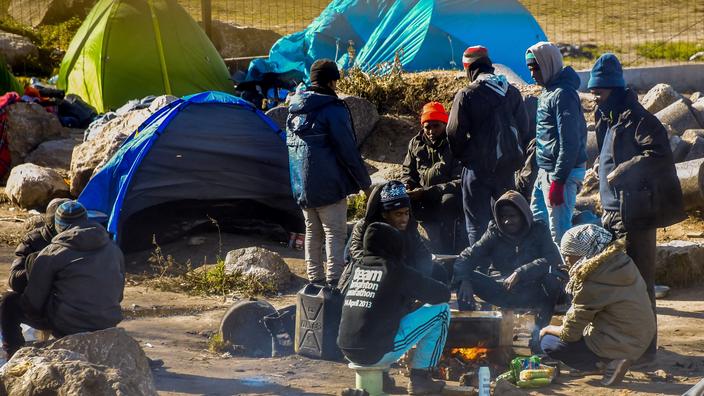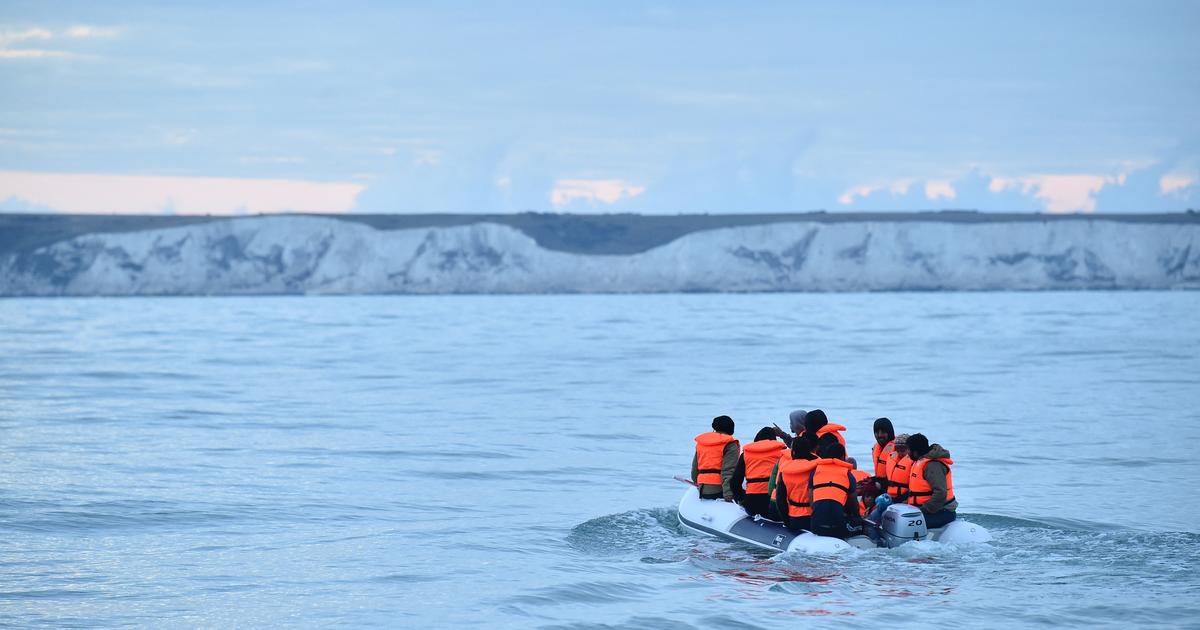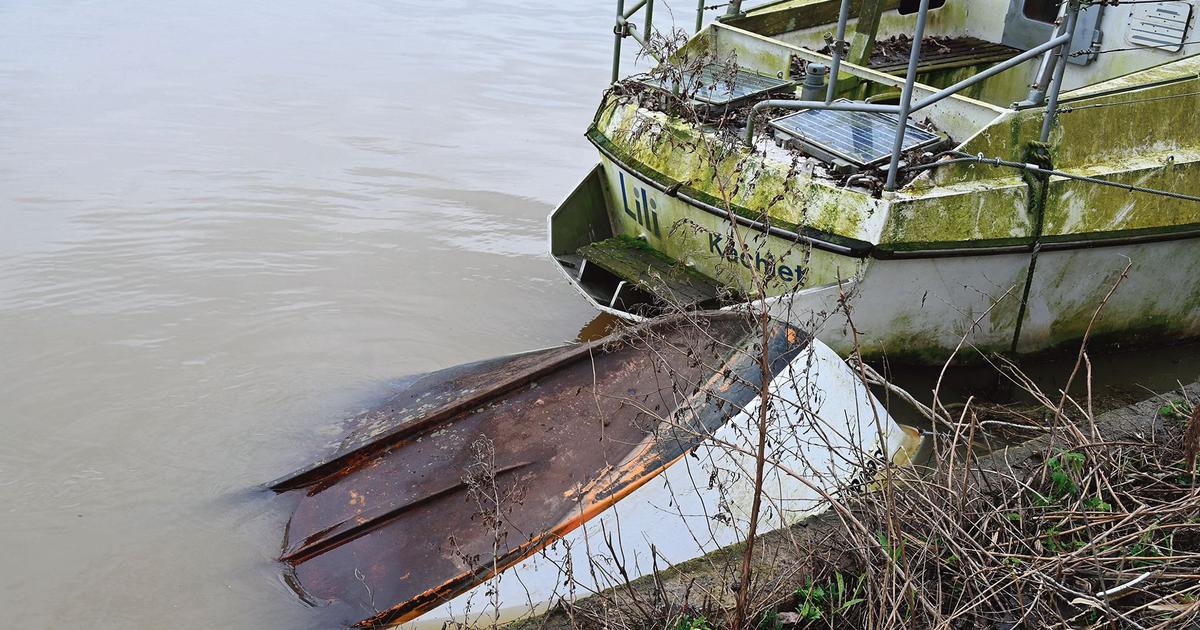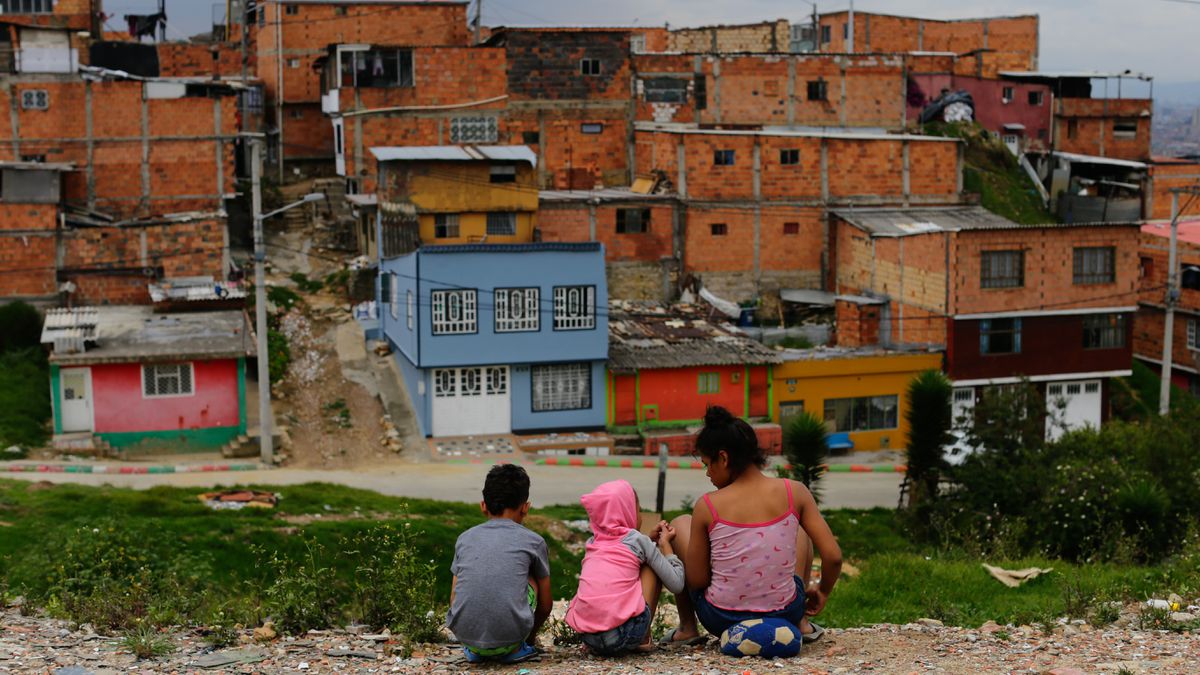"Migration pressure"
,
"England at any price"
: twenty years ago, the newspaper headlines on the situation in Nord-Pas-de-Calais could have been the same as today. Already, waves of illegal immigrants were rushing to find a way to cross the sea and reach England.
“We have been doing the same thing in Calais for two decades
,
”
summarizes Virginie Guiraudon, CNRS research director at the Center for European and Comparative Studies at Sciences Po Paris, and specialist in European immigration policies.
"The camps are closing and reopening, we are strengthening the technological and security structures around the port and the Eurotunnel in an attempt, in vain, to stem the flow of people to the United Kingdom."
Read also Shipwreck of migrants: "The triple betrayal"
At the time, in the 1990s, the first exiles came from Kosovo, Iraq or the former countries of Eastern Europe.
Mostly English-speaking, they aspire to join the United Kingdom.
The labor market, it is said, is more open there than elsewhere, and migrants already have community ties there that could facilitate their arrival.
So much so that in 1999, the French Red Cross opened the Sangatte camp.
This huge hangar was to serve as a transit while awaiting the necessary authorizations to reach Great Britain;
but the modalities of attribution of the right of asylum across the Channel are already drastic and the migrants are piling up in dramatic conditions
.
Kurdish migrants light a fire at the Sangatte reception center in 2001. FRANÇOIS LO PRESTI / AFP
Designed to accommodate 200 people, the hangar had 1,600 before it closed. A boon for smugglers, who then see in it an infinite reservoir of potential customers.
"Six networks of Iraqi Kurdish smugglers had shared the totality of the control of the parking lots for heavy vehicles in the surroundings to get the refugees from the center on the trucks"
, wrote
La Croix
in 2002
.
In November of the same year, Nicolas Sarkozy ratifies the closure of the camp, which he sees as a point of fixation.
"We are putting an end to a symbol of illegal immigration in the world,
" said the then Minister of the Interior. Three months later, the Touquet accords shifted control of the British border to the French side.
The first Calais jungle, in 2009. COR / AFP
Towards a first jungle
Scattered, the microcamps of pallets and tarpaulins eventually form a large one, near the port of Calais: it is the first “jungle”.
Up to 700 people live there and try to board trucks bound for the UK.
On September 22, 2009, the camp was evacuated by 500 police officers under the cameras on the decision of Eric Besson, the Minister of Immigration.
Anti-globalization activists from the No Borders association protest and form a human chain between the CRS and migrants.
Despite protests from the left, the dismantling of this first jungle will be followed by a period of calm: for five years, the number of migrants peaked at less than 250 people scattered around Calais.
“The jungle is the base camp for smugglers.
It is not a humanitarian camp.
There are chiefdoms, it is the law of the jungle that reigns, ”
said Eric Besson.
Dismantling of the first Calais jungle, September 22, 2009. DENIS CHARLET / AFP
In 2015, the peak of the migratory crisis
But in 2014, the situation got worse.
Microjungles appear in Calais, including in the city center.
The number of migrants goes from 250 to 700 in less than a year.
Several camps are dismantled for health reasons.
Meanwhile, the FN won 31% of the votes in the European elections in Calais, then 49% in the departmental elections in 2015. Marine Le Pen went there twice, and proposed to
“suspend Schengen”,
to
“considerably strengthen the criteria of right of asylum ”
, and describes the city as“ besieged ”and
“ abandoned ”
.
At the height of the migration crisis, the jungle hosted more than 9,000 people.
Philippe HUGUEN / AFP
The following year, more than a million migrants arrived in Europe, most of them from Syria, Afghanistan, Iraq or Eritrea. In Calais, the number of refugees then approached 10,000 people. A jungle is reforming around the Jules Ferry reception center, near the port ring road. On the night of July 27 to 28, 2015, more than 2,000 migrants tried to enter the Eurotunnel by hanging on to the shuttles crossing the Channel. The situation reoccurs in January, when around 50 migrants board a ferry following a local protest in their favor. Meanwhile, the fight against illegal border crossings is intensifying.
"We are then witnessing a technological and security reinforcement, with barbed wire walls, radars, C02 detectors to check in the trucks"
, remembers Virginie Guiraudon.
"France was under pressure from the United Kingdom, which threatened to make competition with the Belgian ports to the detriment of Calais if the controls were not ensured
".
Barbed wire walls in Calais, in 2016 PHILIPPE HUGUEN / AFP
Anti-migrant parades
Anti-immigrant parades are multiplying in Calais.
On February 6, 2016, General Piquemal, former commander of the Foreign Legion, made the headlines of the press when he was arrested for having participated in an unauthorized demonstration of a far-right movement.
Meanwhile, the evacuation of the southern jungle causes clashes with the police.
“
Migrants then sew their lips to protest against their living conditions in the camp,”
says Virginie Guiraudon.
Migrants line up to get food in Calais in 2015. PHILIPPE HUGUEN / AFP
The "new jungle" then counts up to nearly 9,000 people, according to associations.
Brawls between Afghan and Sudanese refugees sometimes break out, causing dozens of injuries and even one death in July.
“The situation was getting tense.
Associations tried to convince migrants to seek asylum in France, but many wanted at all costs to join the United Kingdom, ”
continues Virginie Guiraudon.
The jungle was finally evacuated and destroyed in October 2016, and the migrants evacuated to 450 centers across France.
From trucks to "small boats"
Since then, the government has led a fight against the attachment points, by systematically dislodging migrants whose tents and goods are confiscated. Three activists, Father Philippe Demeestère, Anaïs Vogel and Ludovic Holbein began a hunger strike in October to protest against the dismantling of makeshift camps. A “shelter” was set up briefly in November to accommodate 300 migrants, before redirecting them to reception centers outside Calais. Criticized by the town hall, the airlock was closed two weeks later.
"These are devices that we have already tested and tried,"
said the mayor of Calais Natacha Bouchart, adding that "
from the moment we allow a camp to be set up, it creates a draft and we come back to a situation like in the jungle ”.
From now on, the exiles are turning to "small boats" to cross the Channel.
Sameer Al-Doumy / AFP
In recent months, the passage to the UK has evolved.
Faced with the securing of the road and the surveillance of ferries, more and more migrants are opting to cross the Channel on board "small boats": 31,500 crossings have been counted by the maritime prefecture since the beginning of the year. .
"
Covid-19, by reducing road and sea traffic, has intensified the departures on board the boats of smugglers"
, notes Virginie Guiraudon.
"The price of the transfer has increased, according to some accounts, up to 6000 euros
.
"
Until the tragedy: on November 24, 27 migrants died in a shipwreck in the Channel.












/cloudfront-eu-central-1.images.arcpublishing.com/prisa/KMEYMJKESBAZBE4MRBAM4TGHIQ.jpg)


